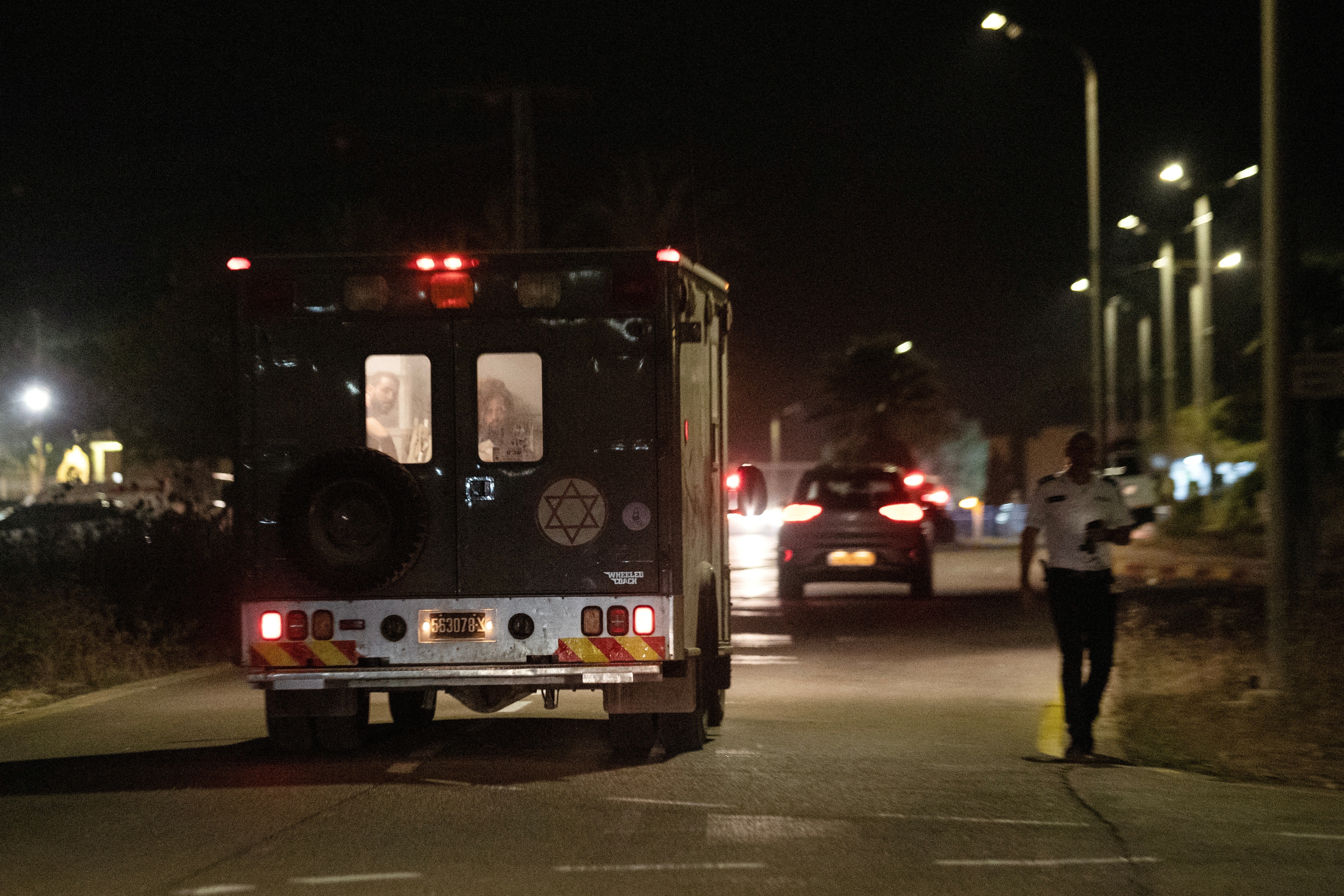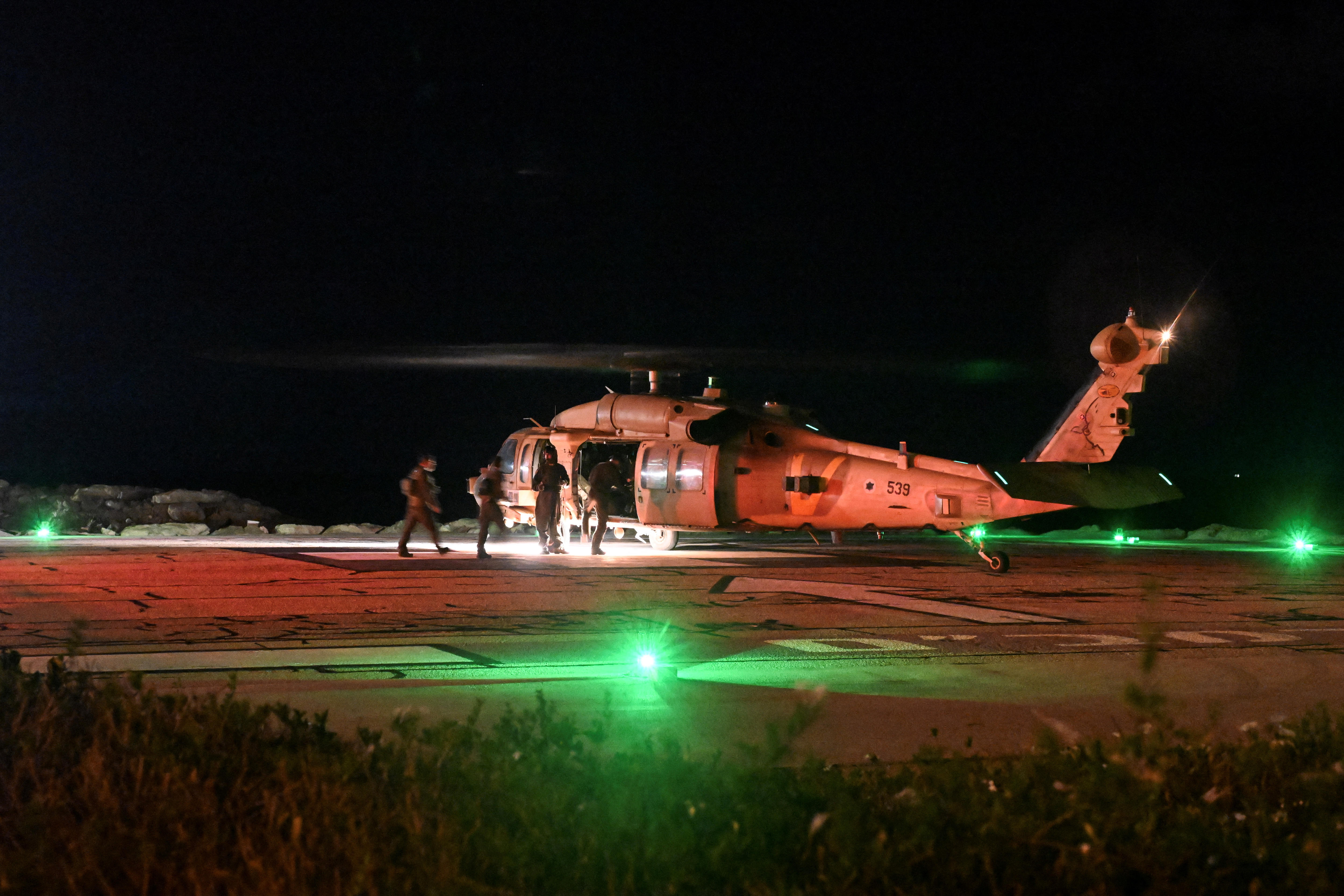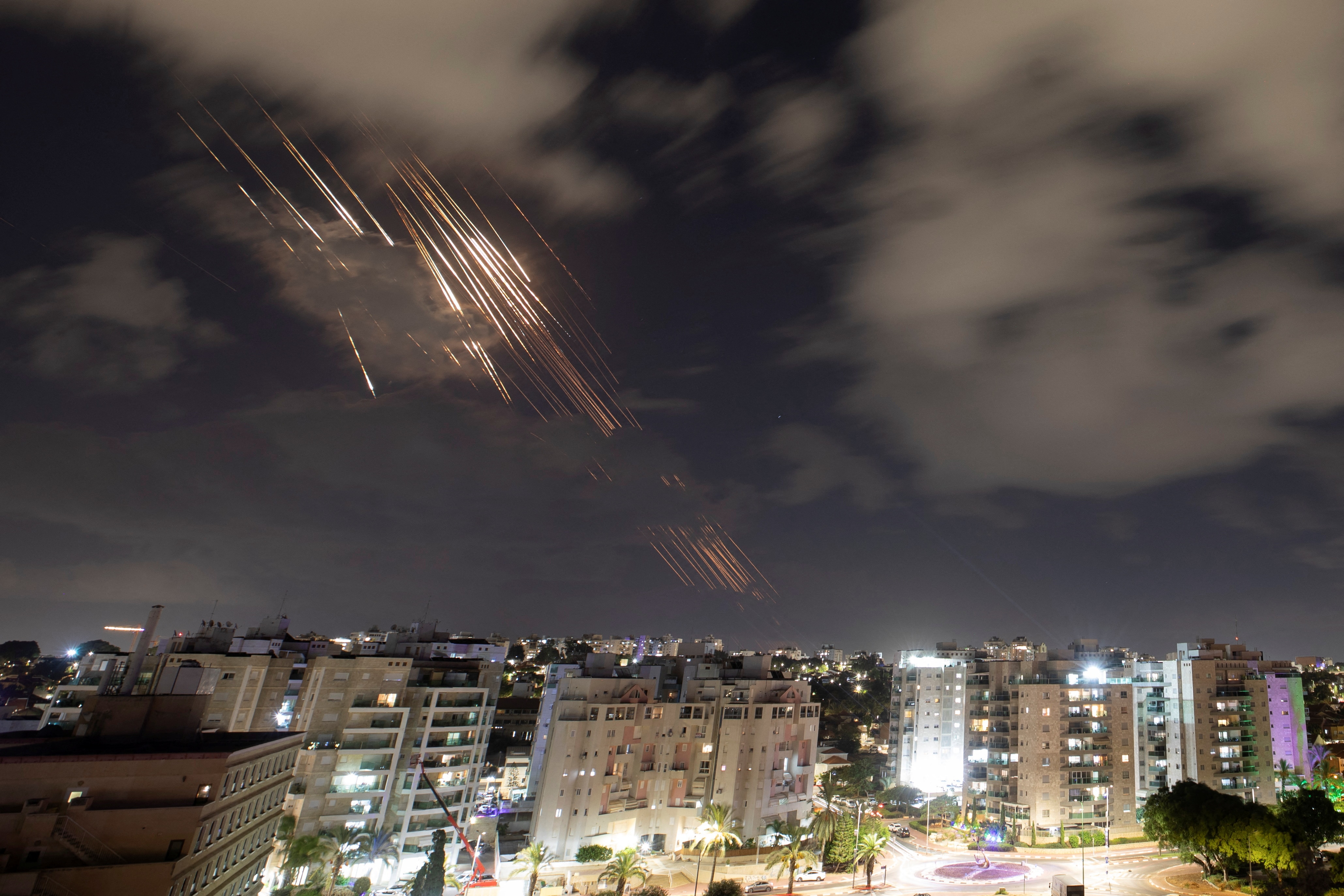What we know about the Hezbollah drone attack that bypassed the Iron Dome and hit an IDF base near Binyamina

An Israeli ambulance near the scene where a drone attack killed four Israeli soldiers.
A Hezbollah drone attack on an army base in central Israel killed four soldiers and severely wounded seven others in the deadliest strike by the militant group since Israel launched its ground invasion of Lebanon nearly two weeks ago.
Dozens more were injured in the attack, which bypassed Israel's Iron Dome defence system and hit the Israeli Defense Forces base near Binyamina, north of Tel Aviv.
Here is what we know so far.
Where did the drone strike hit?
The IDF camp near Binyamina is about 55 kilometres from the Lebanese border, 60km north of Tel Avivand about 30km south of the coastal city of Haifa.
Hezbollah said the target hit on Sunday was a Golani Brigade training camp.
The IDF regards the Golani Brigade as one of its elite infantry units.
Haifa is home to another military base which has also been the target of Hezbollah drone attacks.
What do we know about what happened?
Video footage broadcast on Israeli TV showed wounded people being ferried from helicopters into ambulances.
Haifa's Rambam Medical Centre released video of a wounded person on a stretcher being quickly wheeled inside.
The IDF said four soldiers were killed in the attack and seven more were severely injured.
Israel's Magen David Adom ambulance service said the total number of injured people, including minor injuries, was 61.
Israeli volunteer rescue service United Hatzalah reported that its teams in Binyamina assisted "over 60 wounded people" who were suffering from mild to critical injuries.
Lebanese militant group Hezbollah said the attack was carried out by a "squadron of attack drones" and warned of more strikes to come.
Hezbollah described the operation as "complex" and said it had launched dozens of missiles to "keep Israeli defence systems busy" while the drones were in the air.
The drones "exploded in the rooms where dozens of officers and soldiers of the Israeli enemy were present", a Hezbollah statement said.
Times of Israel diplomatic correspondent Lazar Berman said the attack featured two drones launched by Hezbollah, and that Israel's warning systems had failed.
"It was the same type of suicide drone that Hezbollah has been firing for a year now," he told ABC News Channel.
"I can say one of the drones was shot down, the other one Israel chased with fighter planes [and] with helicopters and it dropped off the radar.
"The assumption was that it had crashed and therefore no sirens were sounded and that is why the soldiers were caught and that is why so many gathered together."
Berman said Israeli authorities would be investigating the failure of the warning system to make sure this "doesn't happen again".

A military helicopter drops off wounded patients in Haifa.
The IDF said the families of the dead and wounded had been notified and said it would release their names later.
"The IDF shares in the grief of the bereaved families and will continue to accompany them," it said in a statement.
In another apparent attack, Hezbollah also said it launched missiles at an IDF "maintenance and rehabilitation base", south of Haifa.
The conflict between Hezbollah and Israel reignited a year ago after the Lebanese militant group began firing missiles and rockets into northern Israel in the wake of the October 7 terror attack by Hamas in the south of the country.
Sunday's drone attack came against the background of continuing fighting in southern Lebanon between Israeli and Hezbollah forces, and Israeli attacks on what it says are Hezbollah targets elsewhere in Lebanon, including in the capital Beirut.
Hezbollah has warned Israelis to stay away from defence bases for the foreseeable future, while the IDF has warned people in Lebanon to leave areas where Hezbollah is operating.
Hezbollah is listed as a proscribed terrorist organisation in Australia
How did the drone or drones get through?
Israel's Iron Dome has been described as one of the most effective air defence systems on the planet.
It is designed to fend off short-range rocket and missile attacks from neighbouring militant groups by firing its own interceptor missiles to take them out.

Israel's Iron Dome intercepts rockets over the city of Ashkelon.
But firing missiles and launching drones simultaneously can overwhelm the system.
University of Sydney senior lecturer on human rights, international peace and security Eyal Mayroz said drones were hard for the Iron Dome to detect.
"They're small and they fly usually low, much lower than rockets and missiles … but [they are] also harder to intercept because they don't have a set course," Dr Mayroz said.
"They're operated from the distance so they can change course and they can change height."
So far, Israel has been able to intercept most drones that have been used since they won — one of the day war, but some have gotten through.
Counter-terrorism expert and senior fellow at the Washington Institute Matthew Levitt said the success of the attack came as a surprise to experts because the Iron Dome had been "so successful to date".
"Part of the brilliance and also the Achilles heel of the system is it identifies targets quickly … but it can be overwhelmed with volume," he said.
"The big fear of the Hezbollah war with Israel is that [Hezbollah] will shoot 500, up to 1,000 rockets at a time.
"We haven't seen that yet. But in this episode one of the drones got through —others were shot down — with devastating effects."
Dr Levitt said it was too early to know why sirens and warnings were not triggered by the drones.
"No matter how you slice it, it was a tragedy and a failure of the Israeli system," he said.
"We have come to anticipate that the Israeli system will work every single time. No system works every single time."
Dr Mayroz said the attack did not necessarily mean there was a flaw in the Iron Dome, which he said was not designed to deal with drone incursions.
An investigation into the attack will aim to uncover why Israel's defence systems were not activated.
"We will study and investigate how an unmanned aircraft penetrated without warning," an IDF spokesperson said in a statement.
"We will learn and improve."
ABC/wires
By:https://www.abc.net.au/news/2024-10-14/what-we-know-about-the-drone-attack-on-israeli-binyamina-base/104468778(责任编辑:admin)
下一篇:Man arrested with weapons at Donald Trump rally identified as Vem Miller as local police say he posed as a journalist
 Socceroos rescue a point
Socceroos rescue a point  Wallabies thrash Wales 52
Wallabies thrash Wales 52 Jake Paul beats Mike Tyso
Jake Paul beats Mike Tyso Live updates: England vs
Live updates: England vs  US election 2024: Donald
US election 2024: Donald  US election live: Kamala
US election live: Kamala
- ·Brazil police formally accuse former pr
- ·Donald Trump's choice for US attor
- ·Japanese state sued in lawsuit seeking
- ·Jury finds MMA star Conor McGregor sexu
- ·Laken Riley's murder became a MAGA
- ·The celebrity look-alike craze is about
- ·Five remaining Bali Nine members could
- ·North Korea's latest weapon agains
- ·Brazil police formally accuse former pres
- ·Donald Trump's choice for US attorne
- ·Japanese state sued in lawsuit seeking to
- ·Jury finds MMA star Conor McGregor sexual
- ·Laken Riley's murder became a MAGA r
- ·The celebrity look-alike craze is about m
- ·Five remaining Bali Nine members could so
- ·North Korea's latest weapon against
- ·Hezbollah says Israel 'cannot impose
- ·Inside the rise of US oligarchs and how i
- ·One of Vietnam's high-profile politi
- ·Shanghai Walmart Attack: A Man Randomly S
- ·South Korean police officers jailed over
- ·Cambodia publicly shames maid deported af
- ·North Korea to use all forces including n
- ·Philippines condemns China attack of Viet
- ·US adds 2 more Chinese companies to Uyghu
- ·North Korean defector steals South Korean
- ·Malaysia deports Cambodian worker for cal
- ·Rebels battle for Myanmar junta’s weste

